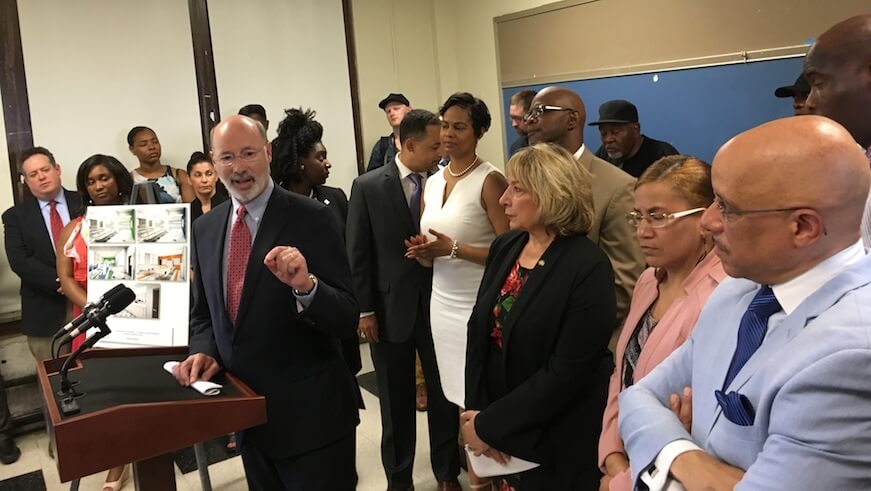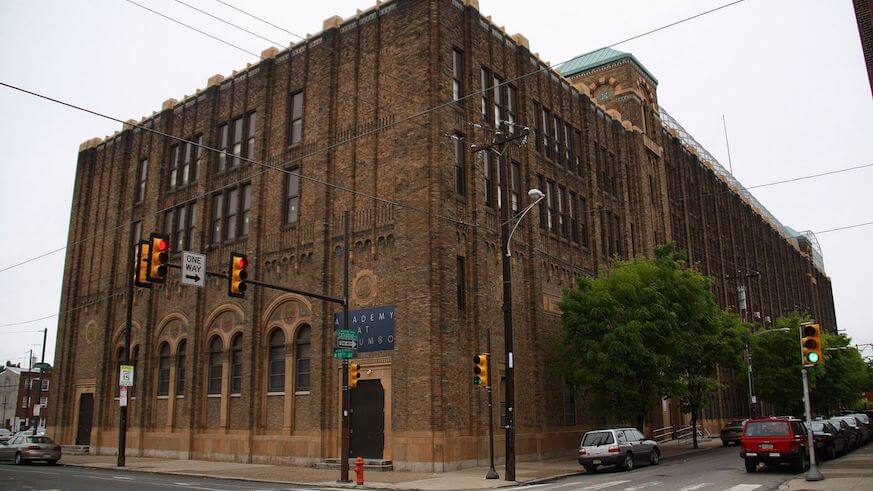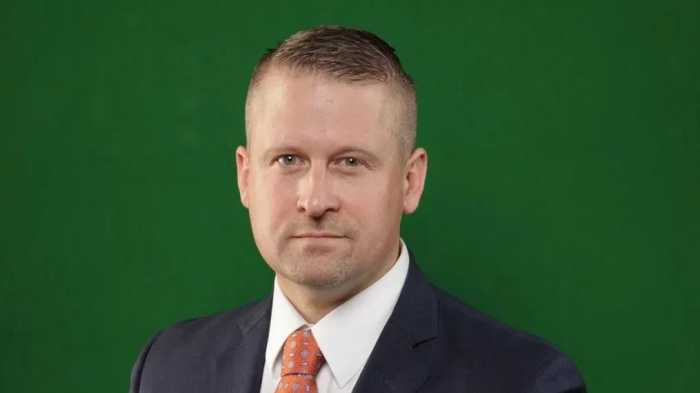Just weeks into the new school year, the School District of Philadelphia is having an increasingly tough time. On Tuesday, a South Philly high school shut down early for repairs after the ceiling collapsed due to weeks of heavy rainfall.
“The Academy at Palumbo School was impacted by flooding from heavy rains over the weekend. School was dismissed at 1 p.m.,” School District spokesman Lee Whack said via email on Tuesday afternoon. “This morning students were relocated to parts of the building that were not impacted, like the auditorium, and alternate arrangements were made for breakfast and lunch. Several classrooms, hallways and the cafeteria have been affected.”
But while leaks and flooding in schools is for many a fact of life, to leaders, it highlights stark deficiencies in the School District’s aged infrastructure.
The first week of the new school year started one week earlier than usual, the week of Aug. 27, in part intended to start the academic calendar with one full week of school.
RELATED: Philly schools to open early after summer-long clean-up
But instead of a full week, all public schools closed early on several days that week and a few the following week, due to a prolonged, record-setting heat wave. Most Philly schools do not have function air-conditioning.

This Philly high school is just one of many of the city’s aged schools
“The extensive water damage at Palumbo High School is another example of the failure of state and federal elected leaders to significantly invest attention and resources to our nation’s aging infrastructure,” Philadelphia Federation of Teachers president Jerry Jordan said in a statement on Tuesday. ” “These types of incidents are made sadder by the fact that they are completely avoidable. … The PFT will be working closely with the District to deal with the immediate problem of getting things back on track for the educators and students at Palumbo. But we must also continue to pressure our elected officials to take the long view, and pass budgets that address the schools, streets and public spaces used by our communities and schoolchildren.”
On Sept. 4, Jordan and other leaders called on state legislators to address the District’s ongoing funding needs with new investments.
For example, bringing central air to the 137 school buildings that lack it would cost about $1 million per site, according to Mayor Jim Kenney.
Reeling from revelations of environmental hazards due to lead paint, asbestos and mold issues, the School District undertook a massive $15-million summer-long cleanup, half-funded by the state, to stabilize and address the hazards. While that project was reported a success, clearly more work remains to be done.
Plans for reopening Palumbo were not available at press-time. Palumbo students, families and the public are urged to visit www.philasd.orgfor updates.




























